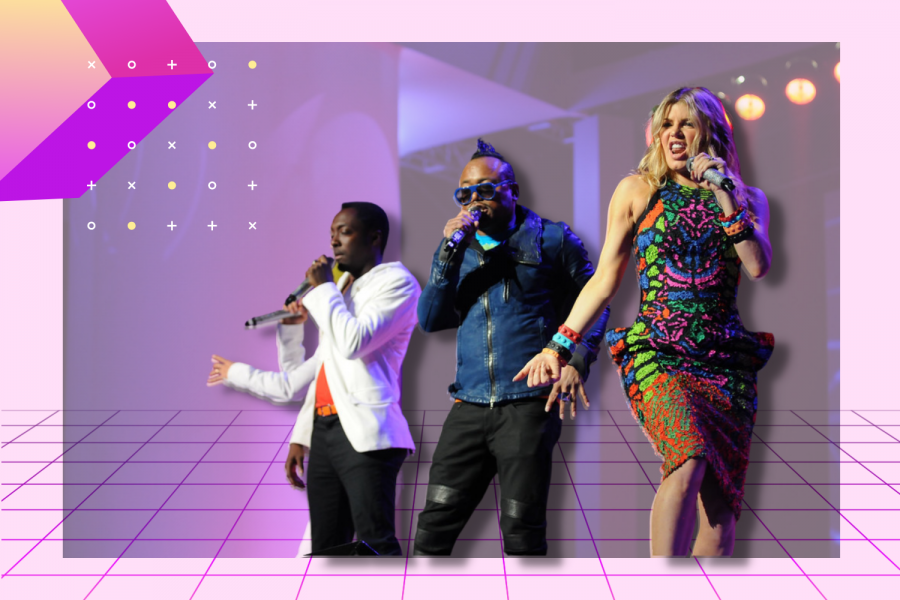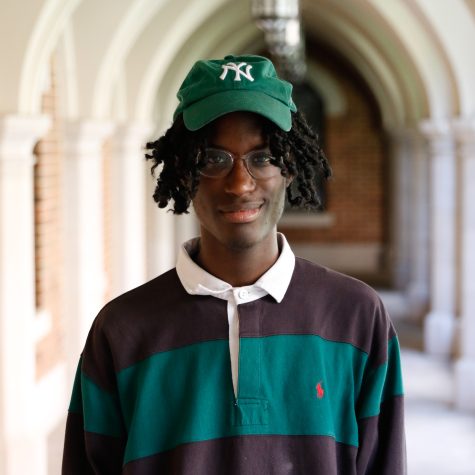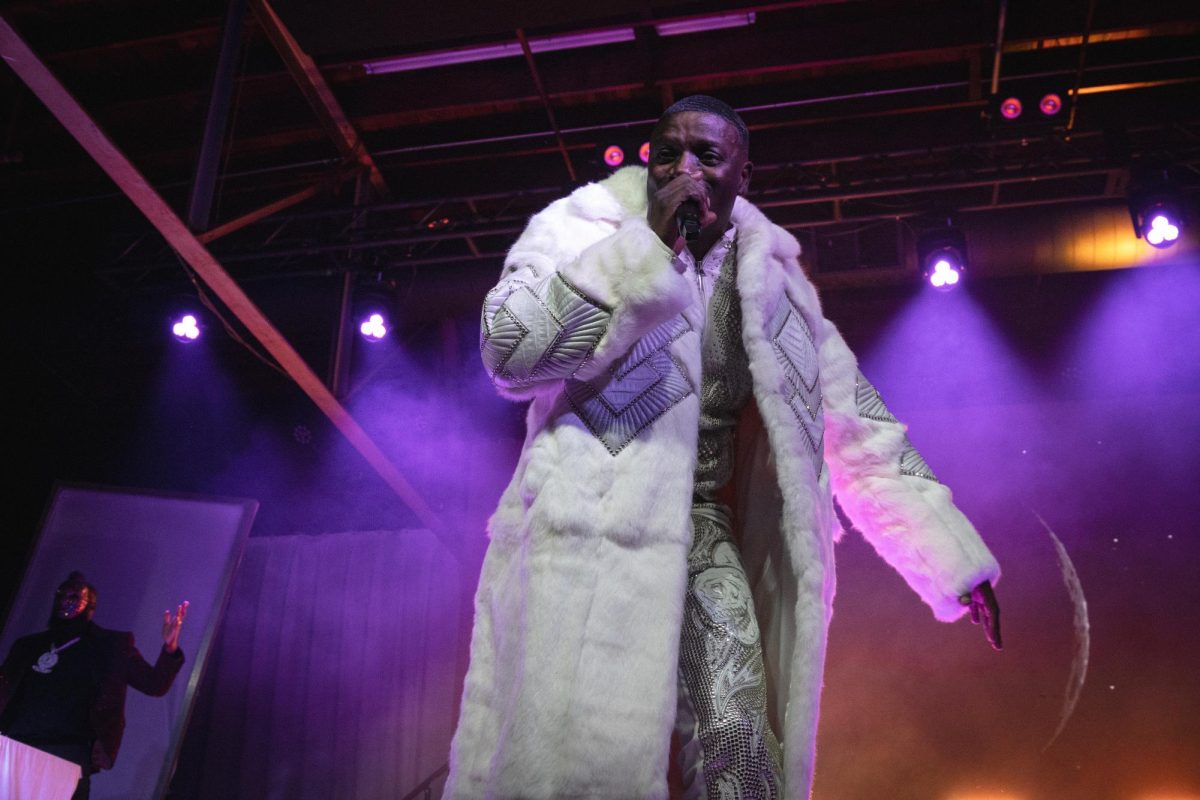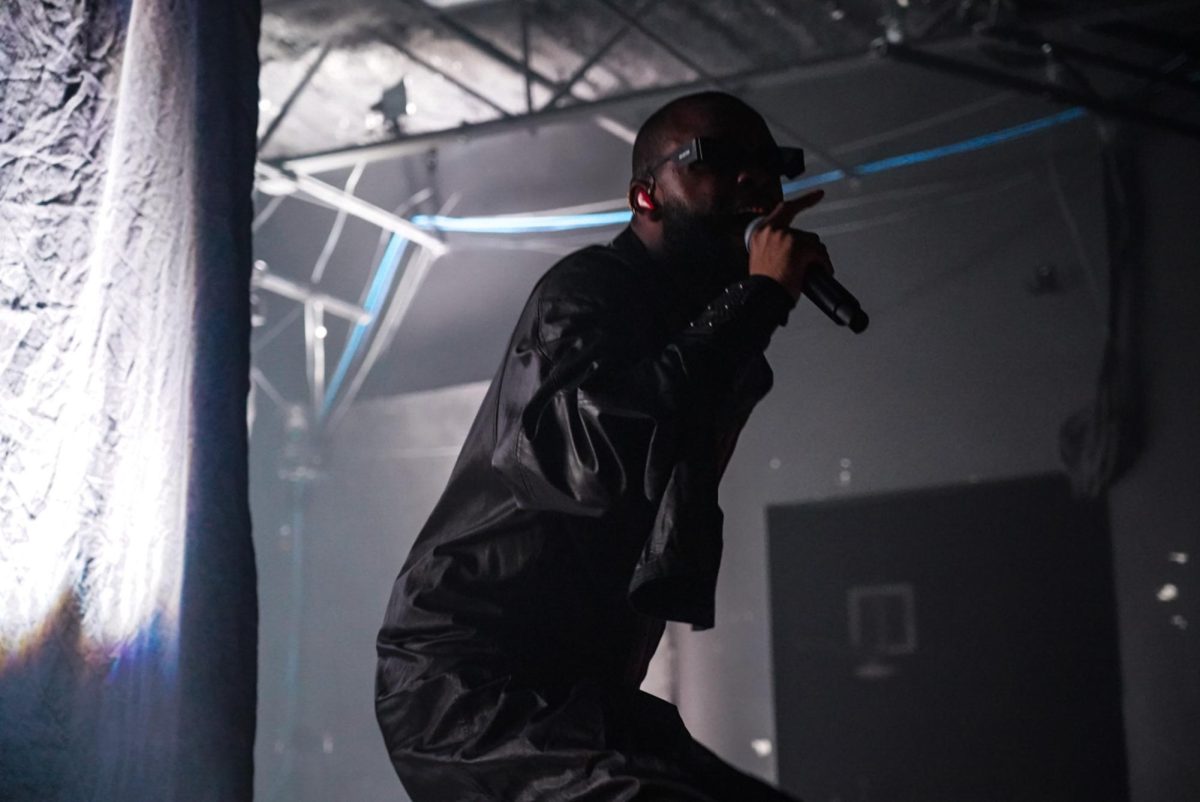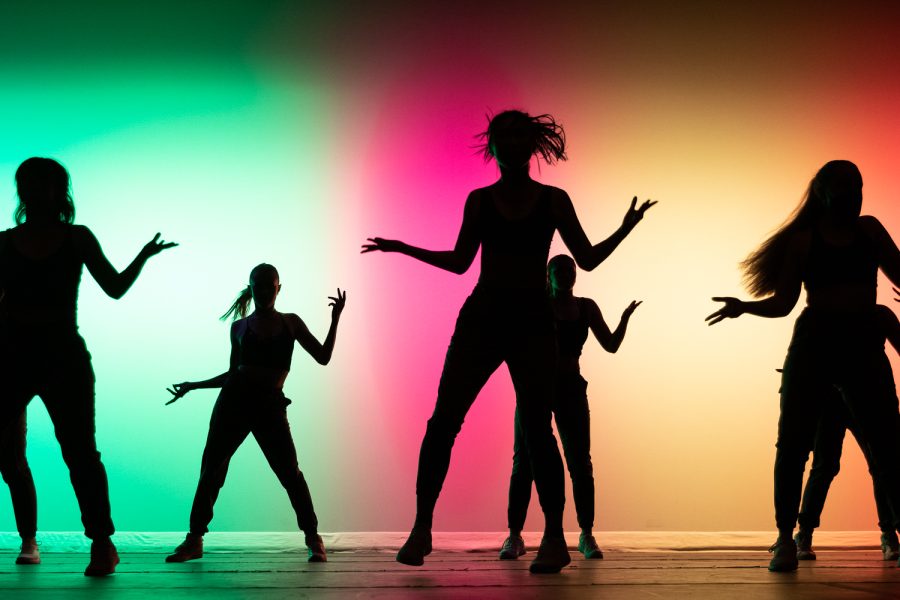At some point on the evening of February 6, 2011, millions of Americans watched as the Black Eyed Peas were ushered down from the ceiling of AT&T Stadium in Dallas. Everything about the spectacle, whether you were watching from home or rushing the platform, felt futuristic: all four members donned full-leather outfits that made them look like the scrappy band of protagonists in a yet-to-be-released “Matrix” sequel. Upon touching the stage, they were flanked by robot-esque dancing humanoids and a host of excessive pyrotechnic displays. “I Gotta Feeling” was blasting in the background, and for all you were seeing, there was no way you couldn’t throw your hands up and rest assured that tonight was, indeed, going to be a good night.
For the duration of their short-lived time in the limelight—symbolically pinnacled by the aforementioned Super Bowl Halftime Show performance—the Black Eyed Peas cashed in on this utopian aura, asserting themselves as torchbearers to a future full of good nights, promising zero limits to how long the fun would last. A majority of the group’s lyrical approach was vested in making you feel either excited that you got to share a world with them, or regretful that you missed the memo.
“I’m so three thousand and eight; you so two thousand and late,” Fergie boasts in “Boom Boom Pow.” In the music video for “Imma Be,” a larger-than-life robot breakdances its way off into the sunset as apl.de.ap swaggers through his closing set of bars. “Livin’ life, feelin’ free; that’s how it’s supposed to be,” apl.de.ap raps, his mohawk reaching the same heights as his spirits. “Come join my festivities, celebrate like I’mma Be.” If you weren’t already on the Black Eyed Peas’ wave, it was time to grab your surfboard. That was, if time hadn’t already run out.
When I was much younger, and didn’t have Gen-Chem exams or a triple dorm room to worry about, I remember being hypnotized by the Black Eyed Peas beyond salvation. One of my earliest memories is of getting a good talking-to from my mother after I yelled the lyrics “Imma be up in the club doing whatever I like”—without, of course, knowing what club I was talking about (not the Boys and Girls for sure)—in the middle of our kitchen. I owned a tabletop electric football set and upon reaching the Super Bowl of a season I had spent the past few months simulating, I invited my entire family to watch the “halftime show”: four cut-out paper drawings of the group, flying around the living room on “jetpacks” (aka my hands). Every time my dad gave me haircuts in our bathroom, I would show him pictures of will.i.am and apl.de.ap, bursting into tears when he explained to me that (1) I didn’t have enough hair for either look and (2) even if I did, the answer was still no.
The appeal of the Black Eyed Peas for both scrawny third-graders like me, and America writ large, rested in a sense of being exempt from the ticking clock—a sense just as accessible as it was desirable. Throughout the era it championed, this feeling was not just limited to one act. In a 2017 essay on the tone of popular music throughout Barack Obama’s presidency, former New Yorker editor Matthew Trammell contemplated the ever-present weightlessness that seemed to recur across genres.
“Ironically, it was the very stability and cool of the ground beneath us, under Obama, that prompted our interest in the skies, whether it was through the windows of Nicki Minaj’s starships or locked out of Heaven with Bruno Mars,” Trammell wrote. “If there was any single mission that Obama pop shared, it was a search for a limit, a fascination with what was above and ahead of us, and getting to fly like a G6.”
The Black Eyed Peas are still making music along the same vein. Their latest album, 2020’s reggaeton-inspired “Translation,” received favorable reviews from a host of publications, one of which applauded it for being a “brand-new, ultimately refreshed side of the Black Eyed Peas that overhauls their tried-and-true dance-pop formula.” It’s the same airborne, drop-everything-and-board-the-rocket-ship music that, with one foot on the stage and the other in the future, revolutionized an entire generation’s imagination. But if the formula hasn’t changed, why haven’t they been relevant since a decade ago? Ironically, their abrupt disappearance from the cultural canon points towards the one variable that they built their brand on evading: time. And while the formulas may not change, the times certainly do.
Nearly one year after the group’s grand entrance from the ceiling of AT&T Stadium, for instance, will.i.am was invited to speak on a forthcoming Intel product at a large convention hosted by the company. He stood onstage, a symbol and living embodiment of the future he had spent years prophesying: over-the-top sunglasses (indoors), crazy haircut, quirky demeanor. There was the sense that when Intel had selected him to give them the address, it was hoping to both align itself with, and capitalize on, the swagged-out hereafter he had gotten American culture hooked on. When the audience stopped clapping, however, and he was forced to give voice to the mystique, its reality embarrassingly failed to live up its ethos.
“I’m excited, you know … because I’m in the studio all the time making music … traveling the world … writing music … on my computer … talking about music. And when I go to buy new equipment … I go … and I look to see if that chip is in there,” will.i.am said, stiff and awkward.
The more he went on, the more he seemed like a kid who told himself he’d ace the presentation without notes, and was now desperately trying to conceal his crippling stage fright upon finally seeing the lecture hall from up front.
When you look up “will.i.am Intel” on YouTube today (seriously, go do it), terms that come up include “Will.i.am Technology Cringe Compilation,” “will.i.am idiot.he.is,” and “will.i.am: World Champion of Bullshit.” More than just a series of unfortunate public event slip-ups, these instances are a painful-yet-comprehensive image of the plight responsible for his group’s downfall overall: no matter how far you venture into the future, the clock still has its lasso around your neck. At some point, the slack will run out. And whether it fits your aesthetic or not, you will be mercilessly yanked back to Earth in front of everyone you inspired to escape its gravity. will.i.am could run from mortality—but just like any of us, he couldn’t hide forever.
The more popular example of time catching up to the Black Eyed Peas is Fergie’s painful rendition of the Star-Spangled Banner at 2018’s NBA All Star Game. I don’t even need to put myself through the anguish of re-watching the video to write about it in detail, because three years later, I still routinely see it on my social media feeds. She seems to be confused about whether this is a nationally-televised sporting event or a sleazy “Happy Birthday Mr. President”-type private rendezvous. As the camera pans, we see Chance the Rapper, Stephen Curry and Kevin Durant, among others, burst into laughter they can no longer suppress. And—as if none of this was enough for long-suffering Black Eyed Peas apologists—she wraps it all up with a violently sudden “let’s play some basketball!” that sounds a lot like a 56 year-old mom barging into her son’s basketball practice with a tray full of honey-roasted apricot skins. Here, Fergie is no longer living in “three thousand and eight.” She’s back to being two thousand and late—and this time, no one is laughing with her. They’re laughing at her.
The Black Eyed Peas aren’t the only act to ultimately fall victim to the clock, nor is obsoletion as a result of passing time a novel concept. One might even say the construct is “as old as time,” but as cliché of a sentence as that is, it’s very true: as long as time has existed, so has the inescapable prospect of falling to it.
One pre-Black Eyed Peas group that saw a similar fate was the B-52s, a glam-pop faction known for earworm radio darlings like “Love Shack.” The first time I heard the B-52s’ music, I was sitting in a Nashville Hard Rock Cafe, picking away at pseudo-spicy fried shrimp while making involuntary eye contact with the person who happened to be sitting closest to a nearby mini MTV screen. R.E.M’s 1994 single “Star 69” was blaring over boisterous restaurant speakers. I enjoyed it, because it was directly reminiscent of the clean-cut new wave punk that a sixth grade me listened to wide-eyed underneath borrowed headphones; it was the kind of song that populated soundtracks of the dust-covered Xbox 360 skateboarding games in your uncle’s attic, enjoyed best after years of hopeless Googling. When the guitars faded out, and the B-52s’ “Legal Tender” made its way into the sound system, there was a difference that you could feel. This time, there weren’t angry drums, abrasive call-and-response dynamics, nor arena-friendly refrains—rather, it sounded like Kidz Bop: the voices were too enthusiastic to possibly be serious. The percussion sounded like it was coming from a “Little Tikes” drum machine. In a more literal sense, I hadn’t heard synthesizers that sounded like this since I received “Kidz Bop: 80s Gold” as part of a McDonald’s Happy Meal at eight years old.
As much as “Legal Tender,” along with a majority of the B-52s’ music, is brilliant to the point that you can very literally get stuck playing it all day (trust me: I’ve been down that rabbit hole), my negative reaction had nothing to do with the sounds. Rather, I reacted the way I did because that song spoke a sonic language defunct to both myself, and the vast majority of the country. There was a day in America where the sound of society was glitzy and daintily-packaged, a sonic extension of the consumerist pleasures wherein it was beginning to find its fix. But now, past the days of glam and up from the starships of “Obama pop,” sounds that were curated for those yesterdays are simply incompatible with ears that have been there and done that.
When the Black Eyed Peas descended from the ceiling of AT&T Stadium on February 6, 2011, they preached that tonight was going to be a good night. Their entire stint as America’s futuristic darling was hitched onto that declaration: they wooed their audiences with the simple prospect of a good night, which turned into a decade-long good night’s sleep, populated with dreams of utopian futures, undying youth, unprecedented swagger.
But time waits for no man—or pea. And no matter how good the night is, at some point, the dreamer must wake up.











